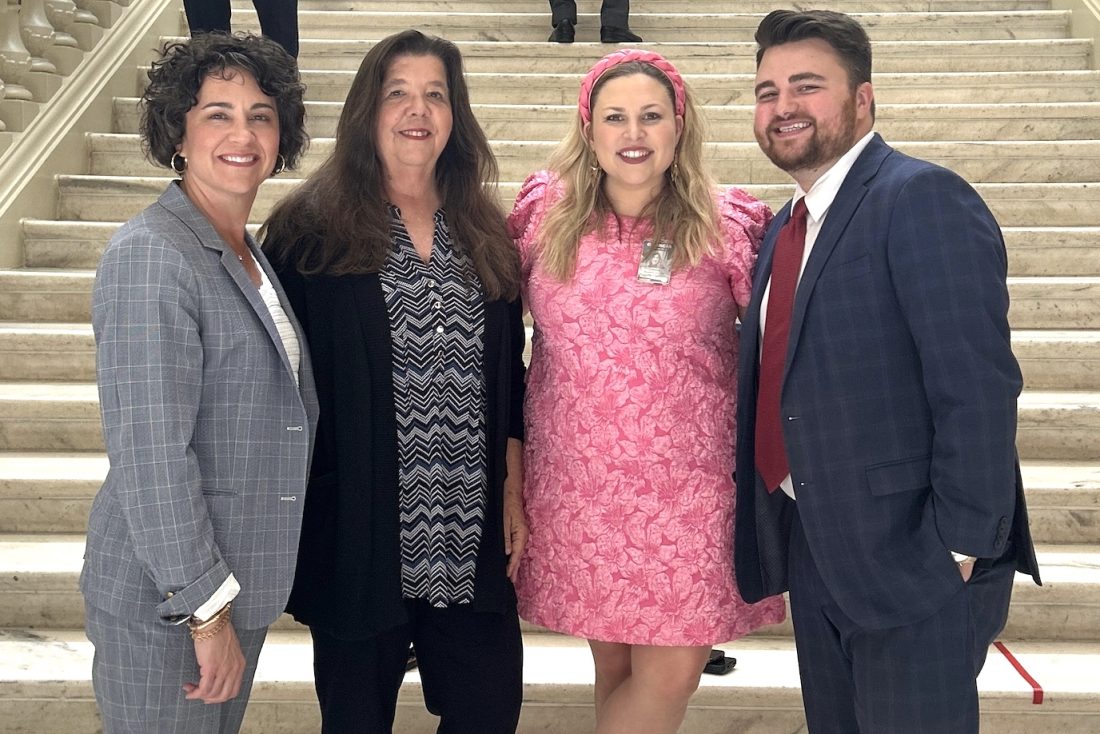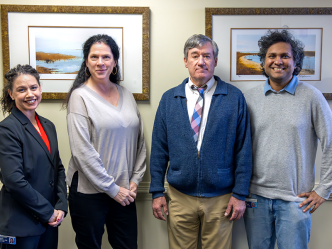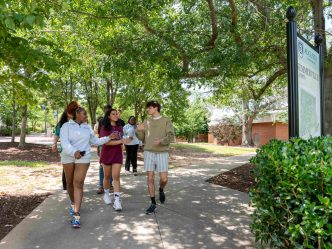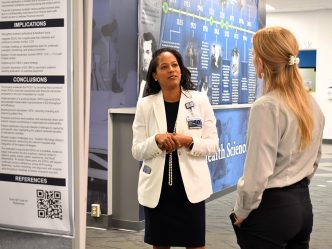The State Legislative Session wrapped up Sine Die on Friday, April 4, which means no further bills and resolutions will be considered this year. This is the first year of the biennial bill process, so bills not adopted this year remain eligible for consideration in 2026.
For the 40-day 2025 legislative session spanning from January into the first week of April, the Augusta University Government Relations team tracked more than 635 bills and resolutions that would impact AU, its operations, programming and instruction, including 221 health care bills and 96 bills or resolutions aimed at higher education.
Of those bills and resolutions tracked, 142 bills received final passage and are awaiting review by Georgia Gov. Brian P. Kemp. The governor has 40 days to review those bills, during which time he can sign, veto or do nothing, which effectively allows them to become law.
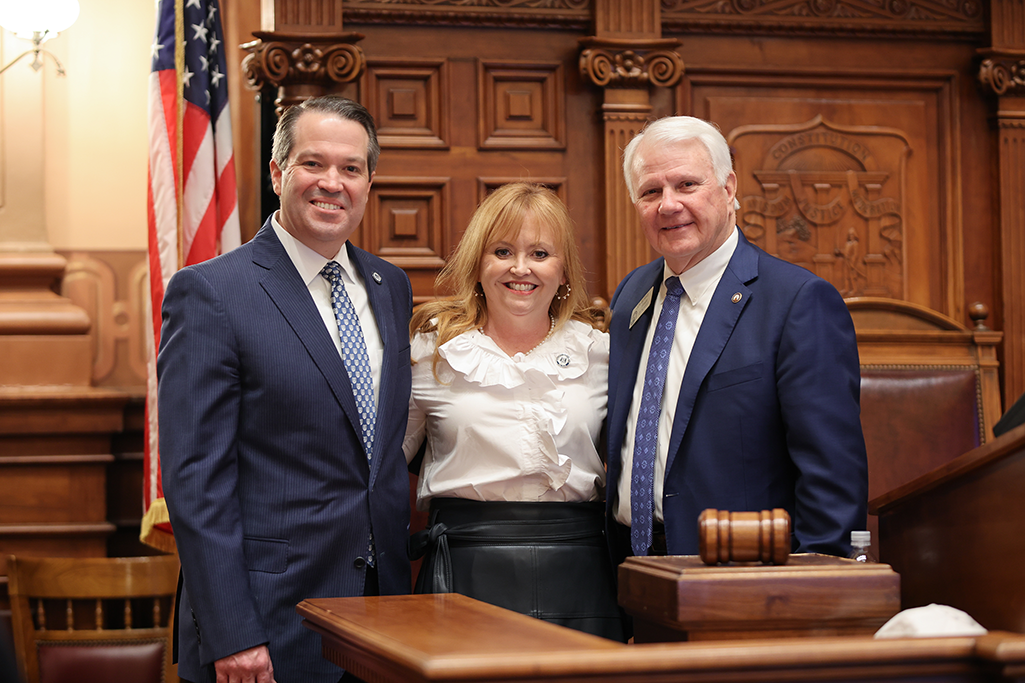
“The incredible support of the governor, the lieutenant governor, the Speaker of the House, House and Senate leadership and members of the Georgia General Assembly provides Augusta University with the tools and resources to be a world-class institution.”
Augusta University President Russell T. Keen
“Augusta University is well represented at the State Capitol by the Office of Government Relations,” said Augusta University President Russell T. Keen. “The advocacy for the needs of our institution, led by Margie Miller, vice president of Government Relations, assists in our ability to provide a world-class academic experience and cutting-edge research.
“Additionally, the incredible support of the governor, the lieutenant governor, the Speaker of the House, House and Senate leadership and members of the Georgia General Assembly provides Augusta University with the tools and resources to be a world-class institution,” Keen added. “Thank you all for a great legislative session.”
Keen also wanted to personally thank the University System of Georgia and USG Chancellor Sonny Perdue for their commitment to the mission of Augusta University.
The fiscal year 2026 budget totals $38 billion, including increased spending on education, health care, public safety and mental health. House Bill 68, sponsored by Speaker of the House Jon Burns, R-Newington, included $169.5 million in formula funds for the University System of Georgia to reflect a 2.7% increase in enrollment and a 0.5% increase in square footage.
The FY26 budget also included $7.4 million in new funding for graduate medical education. That funding will provide $150,000 to the Medical College Georgia’s Maternal-Fetal Medicine fellowship and $4 million in grants to grow and expand existing residency programs in the state of Georgia, which MCG and its partner hospital are eligible to apply for.
Earlier this year, Keen, university leadership, the Government Relations team and the Augusta community celebrated the governor’s amended fiscal year 2025 budget, which included $99.8 million to help fund the construction of a new translational research building at Augusta University.
A new 150,000-square-foot research building will provide modern laboratory spaces, advanced equipment and updated technology infrastructure, ensuring scientists have the necessary tools to support the continued growth of the groundbreaking research at Augusta University.
“The annual legislative session is like the Super Bowl for the Office of Government Relations,” Miller said. “We prepare all year to put Augusta University in the best position. This year was incredible. AU received the largest cash-funded capital project in the amended state budget. Those are sessions you dream about and hope for. I am so proud of all who pulled together to support the need for a new research building.”

“We prepare all year to put Augusta University in the best position. This year was incredible. AU received the largest cash-funded capital project in the amended state budget. Those are sessions you dream about and hope for. I am so proud of all who pulled together to support the need for a new research building.”
Margie Miller, vice president of Government Relations
The Government Relations team had the opportunity to collaborate with members of the legislature on impactful legislation to AU and its teaching mission. The goal of House Bill 322, sponsored by state Rep. Lee Hawkins, R-Gainesville, is to help the Dental College of Georgia recruit new faculty members.
The bill, which was approved by the House and Senate, would allow dentists from other states, countries and territories to apply to the Georgia Board of Dentistry to receive an instructor’s license that would allow them to teach only at accredited dental programs in Georgia.
Last year, Kemp and the Georgia General Assembly allocated $178 million in the fiscal year 2024 budget to fund the expansion of the Dental College of Georgia into Savannah, which will train an additional 50 students per year. Established in 1969, the Dental College of Georgia provides education and training for nearly 400 dental students and approximately 60 residents each year.
“We were able to work on some great legislation and budget items this year,” said Ashton Blackwood Paine, director of State Government Relations for Augusta University. “HB 322 will be a significant measure to help continue the success of DCG. Also, receiving the last year of funding for our Maternal-Fetal Medicine fellowship, which is a three-year fellowship, is incredible because it is addressing a need in our state. I’ve never been more thrilled to see what our team accomplished.”
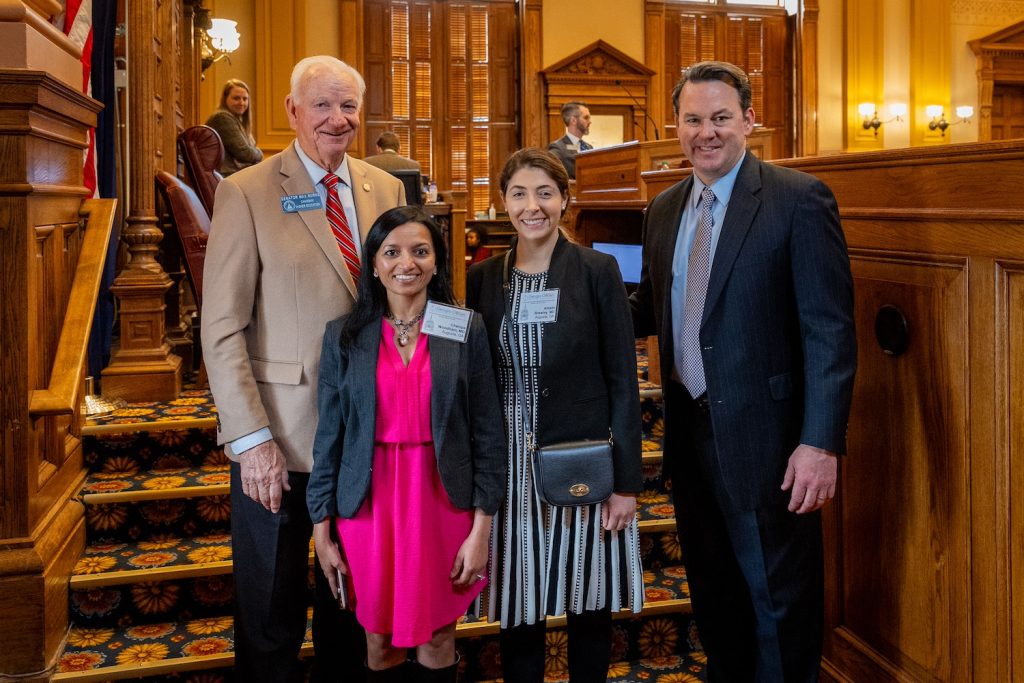
“HB 322 will be a significant measure to help continue the success of DCG. Also, receiving the last year of funding for our Maternal-Fetal Medicine fellowship, which is a three-year fellowship, is incredible because it is addressing a need in our state. I’ve never been more thrilled to see what our team accomplished.”
Ashton Blackwood Paine, director of State Government Relations for Augusta University
The Government Relations team was also pleased to see House Bill 38, sponsored by State Rep. Chuck Martin, R-Alpharetta, receive final passage.
Launched in 2022, the Georgia College Completion Grant is a state-funded program designed to help students close to graduating cover outstanding balances for direct costs like tuition and fees.
Students within the USG who are awarded this grant can receive up to $2,500 to help them complete their college career. For the past three years, the program has received an annual budget of $10 million to provide grants to students in Georgia.
Prior to the introduction of HB 38, students had to complete at least 80% of their credit requirements for an undergraduate major or program of study to receive the grant. But HB 38 reduces that threshold to 70% for students in a four-year degree program and 45% for students in a two-year program.
“We just want to get people across the finish line,” Martin told the Senate Committee on Higher Education earlier this year. “In the first year of this program, $7.3 million was used for 6,890 awards of this grant, and 6,000 students were helped with it. And almost 95% of the classes attempted were passed. So, this is working. This is a good value for the state.”
State Sen. Max Burns, R-Sylvania, who serves as chairman of the Senate Committee on Higher Education, supported Martin’s proposed changes to the Georgia College Completion Grant, insisting it will help more students throughout Georgia earn their degree.
“This is a completion program that is really working,” Burns told the Senate Committee on Higher Education in March.
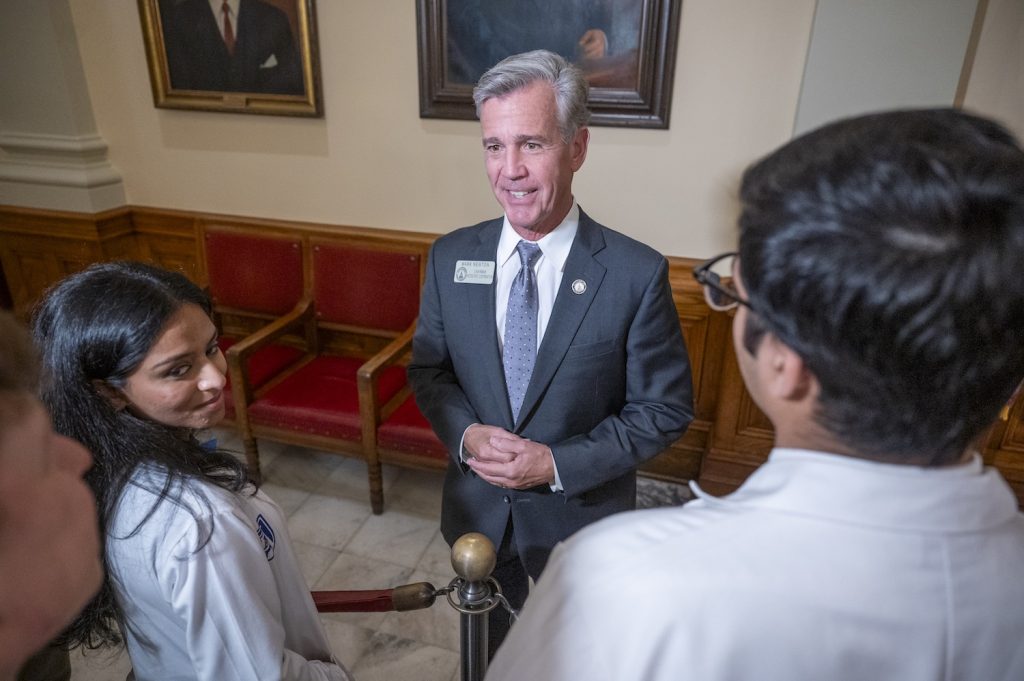
Keen and the Government Relations team also closely monitored the success of House Bill 144, introduced by State Rep. Mark Newton, R-Augusta, who is a MCG alumnus and the chairman of the House Appropriations Subcommittee on Higher Education. More than a decade ago, Georgia became the first state in the nation to offer a tax deduction to preceptors, community-based physicians who provided uncompensated training to the state’s medical students.
“I was thrilled to work with our team and our Capitol partners on important legislation like HB 144 which will greatly help our volunteer faculty around the state. And I was happy to be part of such a great AU Capitol Day, especially interacting with our students, which reminds me why our work under the Gold Dome is so impactful.”
Luke Ray, assistant director of State Government Relations for Augusta University
House Bill 144 called for changes to the preceptor tax incentive program that would positively impact preceptors and their students.
The current program allows community-based preceptors to earn tax credits for providing community-based clinical training for students from the state’s medical, osteopathic, advanced practice nursing or physician assistant educational programs.
This bill adds dentistry to the program and proposes to offer $1,000 for each preceptorship rotation, including $750 for advanced practice nurses and physician assistants for each preceptorship rotation with a maximum of 10 rotations per calendar year, and extends the sunset to 2030.
“This was an incredible and busy legislative session,” said Luke Ray, assistant director of State Government Relations for AU. “I was thrilled to work with our team and our Capitol partners on important legislation like HB 144, which will greatly help our volunteer faculty around the state. And I was happy to be part of such a great AU Capitol Day, especially interacting with our students, which reminds me why our work under the Gold Dome is so impactful.”
The Government Relations team at Augusta University would like to thank everyone for following the Capitol Connection newsletter during this legislative session. AU encourages readers to continue to follow this newsletter throughout the year on a quarterly basis until the beginning of the 2026 legislative session. In January, the newsletter will return to its weekly updates.
 Augusta University
Augusta University
